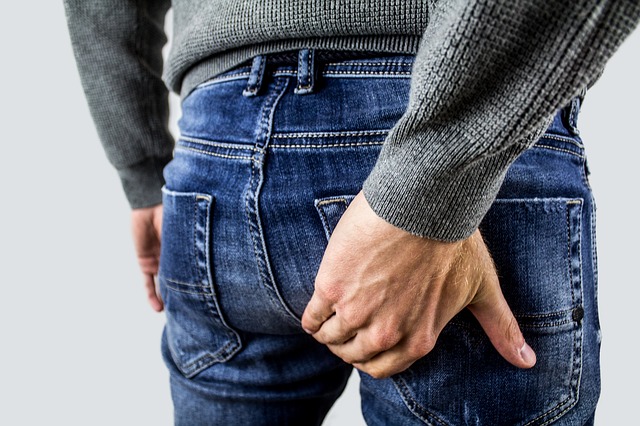
A lot of people talk openly about their other health issues, but do not want to talk about their hemorrhoids. Millions of people all over the world have dealt with these symptoms, or are dealing with them right now, and could benefit from good information. The tips provided here will help you treat hemorrhoids, and prevent them in the future.
Keep your anus clean if you currently suffer from hemorrhoids. A moist towelette is preferable to toilet paper, and it will probably be more comfortable, too. The warm sitz bath can relieve the swelling and the pain that is associated with the hemorrhoids. About 20 minutes of soaking should provide some relief.
You can decrease your chances of getting external hemorrhoids by practicing better hygiene in the bathroom. Use soft toilet paper that does not leave paper or residue behind, and use moist wipes after every bowel movement.
Drinking Plenty
Drinking plenty of water can help to reduce the symptoms and growth of hemorrhoids. Drinking plenty of water each day softens your stool naturally. You might also consider reducing or eliminating the amount of caffeinated foods and beverages from your diet. The same rules apply for alcohol, as well.
Stop hemorrhoid irritation and pain by using ice. In addition to being itchy, hemorrhoids are extremely painful. An ice pack will both decrease pain and reduce swelling. Try putting hot and cold compresses on your hemorrhoids. Enjoying a warm bath while alternating treatment with a cold pack will reduce swelling and pain caused by hemorrhoids, making you more comfortable.
The more you know about how hemorrhoids are formed, the better prepared you will be if you have the misfortune to experience them. Learn more about hemorrhoids if you suffer from them or have a loved one that does. The fundamental concept behind hemorrhoids is that they are a cluster of nerves that have swelled and become painful.
You can treat hemorrhoids with topical creams or home remedies. Soak in a warm sitz bath for 15 minutes, especially after having a bowel movement. Hemorrhoids can itch like crazy, but it's important not to scratch since this will just make things worse. Applications of witch hazel on a clean pad can be very effective in relieving the itch. Eat a lot of fiber-rich foods, and get your eight glasses of water daily. A balanced diet will translate to a more regular digestive system and fewer hemorrhoids outbreaks.
Heavy Lifting
Lifting items that are too heavy for you to lift can cause hemorrhoids. The strain caused by heavy lifting is equivalent to the strain that you exert when forcing a bowel movement. If you're having hemorrhoids on a regular basis, you need to consider somehow eliminating all heavy lifting.
When you have hemorrhoids, avoid laxatives. Laxatives are for occasional use, not a long term remedy. If you have recurring problems, alter your diet to help you achieve more consistent bowel movements.
To relieve the pain of hemorrhoids, consider dropping a few pounds. People who are overweight tend to get hemorrhoids more frequently. Abdominal pressure from extra weight can cause tension in your anal veins. Decrease the pressure with a weight loss program that includes a generous amount of high fiber foods. Using laxatives continuously to lose weight or treat hemorrhoids is not a great idea.
Consume a diet that is rich in fiber. You will have softer stool if you eat a diet that is rich in fiber. Softer stools let you use less force when going to the bathroom, and will help minimize any pain or discomfort you may feel when pushing. Including raw fruits and vegetables in your daily diet will serve you well, as will taking a daily fiber supplement.
You should make an effort to keep your body hydrated at all times. When you do not drink enough water, you will lose it from your feces. The result is stool that is too hard to pass and it can be painful when you go to the bathroom. Make sure that you consume the daily recommended amount of 32oz of water per day, and then dehydration will not occur.
The very private nature of hemorrhoids' affected areas makes it very difficult for many adults to openly seek advice from their friends or families. Fortunately, the information that you have just read is sure to answer at least a few of your questions about the symptoms and treatments that are associated with hemorrhoids.
